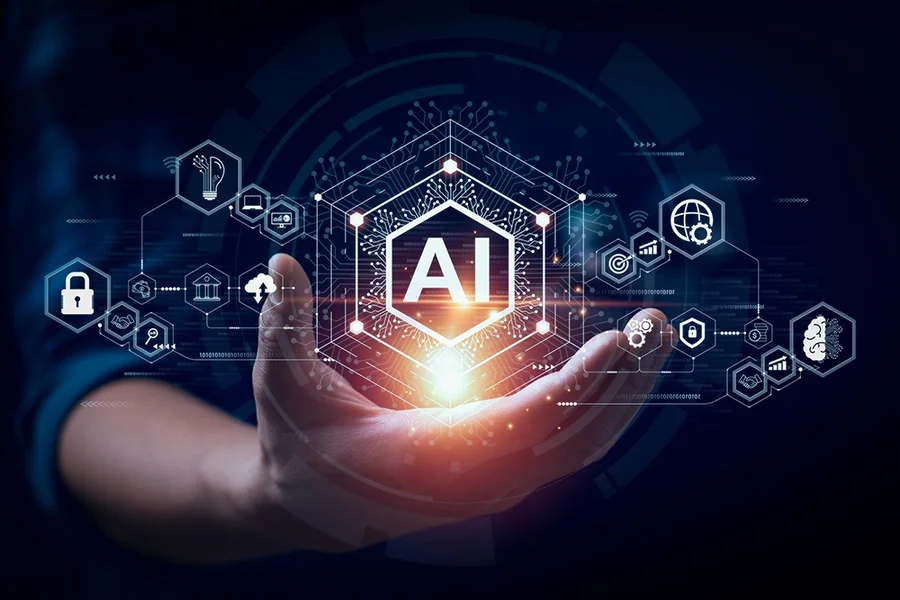Artificial Intelligence (AI) has transformed from a futuristic concept into a practical technology influencing our daily lives. From voice assistants like Siri and Alexa to advanced data analysis and autonomous vehicles, AI is reshaping how we live, work, and interact. As we continue to innovate, AI’s role in the future is only set to expand—bringing with it both immense opportunities and important challenges.
What is Artificial Intelligence?
Artificial Intelligence refers to the simulation of human intelligence in machines that are programmed to think and learn. These machines can perform tasks typically requiring human intelligence, such as visual perception, speech recognition, decision-making, and language translation.
AI is generally divided into two categories:
-
Narrow AI: Designed to perform a specific task (e.g., facial recognition or recommendation engines).
-
General AI: A more advanced form that can perform any intellectual task a human can do (still theoretical).
Real-World Applications of AI
AI is not just a buzzword—it’s already embedded in many industries. Here are some of the most significant applications:
1. Healthcare
AI helps doctors diagnose diseases faster and more accurately using image recognition and predictive analytics. AI-powered chatbots also assist patients with basic medical advice. Tools like IBM Watson Health are improving treatment plans by analyzing vast medical datasets.
2. Finance
Banks and financial institutions use AI to detect fraud, automate trading, and offer personalized financial advice. Robo-advisors manage investments based on algorithms, eliminating the need for human intervention.
3. Retail
Retailers like Amazon and Walmart use AI for inventory management, product recommendations, and customer service chatbots. AI helps create personalized shopping experiences by analyzing user behavior.
4. Transportation
AI is at the heart of autonomous driving technology. Self-driving cars from Tesla and Waymo use AI to understand traffic, detect pedestrians, and make split-second decisions. AI also optimizes logistics and delivery routes for companies like FedEx and UPS.
5. Education
AI-based platforms offer personalized learning paths for students, adaptive testing, and real-time feedback. Tools like ChatGPT or language-learning apps like Duolingo provide interactive learning experiences.
Benefits of AI

The growth of AI brings numerous advantages across different sectors:
-
Efficiency and Automation: AI systems can work 24/7 without fatigue, increasing productivity and reducing costs.
-
Data Analysis: AI can analyze vast amounts of data quickly, identifying patterns that humans might miss.
-
Personalization: From streaming recommendations to personalized ads, AI makes user experiences more relevant.
-
Safety: In hazardous industries like mining or space exploration, AI-powered robots can operate in dangerous conditions.
Challenges and Concerns
Despite its many benefits, AI also raises significant concerns:
1. Job Displacement
Automation through AI is expected to eliminate many jobs, especially those involving repetitive tasks. While new roles will emerge, the transition may leave many workers unemployed or under-skilled.
2. Privacy Issues
AI relies on large datasets, often involving personal information. Without strict regulations, this data can be misused, leading to privacy violations and security breaches.
3. Bias and Fairness
AI systems can inherit biases from the data they are trained on, leading to unfair treatment in areas like hiring, lending, or law enforcement. Ensuring AI fairness is a major ethical challenge.
4. Security Risks
Malicious AI systems can be used for cyberattacks, deepfakes, or autonomous weapons. As AI gets smarter, ensuring its safe use becomes critical.
The Future of AI
The next decade is likely to witness major breakthroughs in AI:
-
AI and Creativity: Tools like DALL·E and ChatGPT already show AI’s ability to create images, text, music, and code. Future AI might collaborate with humans in art, design, and storytelling.
-
Human-AI Collaboration: Rather than replacing humans, future AI will augment human intelligence. Doctors, engineers, and teachers will use AI as a co-pilot to enhance decision-making.
-
General AI: Scientists are working towards Artificial General Intelligence, a system capable of learning any intellectual task. While it may take decades, its implications will be revolutionary.
Responsible Development of AI
As AI grows more powerful, it is essential to ensure it is developed responsibly. Governments, companies, and researchers must prioritize:
-
Transparency: Making AI decisions explainable and understandable.
-
Accountability: Holding developers and users accountable for misuse or unintended consequences.
-
Ethical Guidelines: Establishing boundaries to prevent harm and ensure human rights.
Organizations like OpenAI, Google DeepMind, and the Partnership on AI are working toward responsible AI development by focusing on safety, fairness, and collaboration.
Conclusion
Artificial Intelligence is no longer a far-off dream. It’s already transforming industries, shaping our personal lives, and paving the way for future innovation. However, with great power comes great responsibility. As we continue to integrate AI into the fabric of society, we must balance innovation with ethics, opportunity with caution, and efficiency with empathy. The future of AI is in our hands—and how we choose to guide it will determine its true impact.

